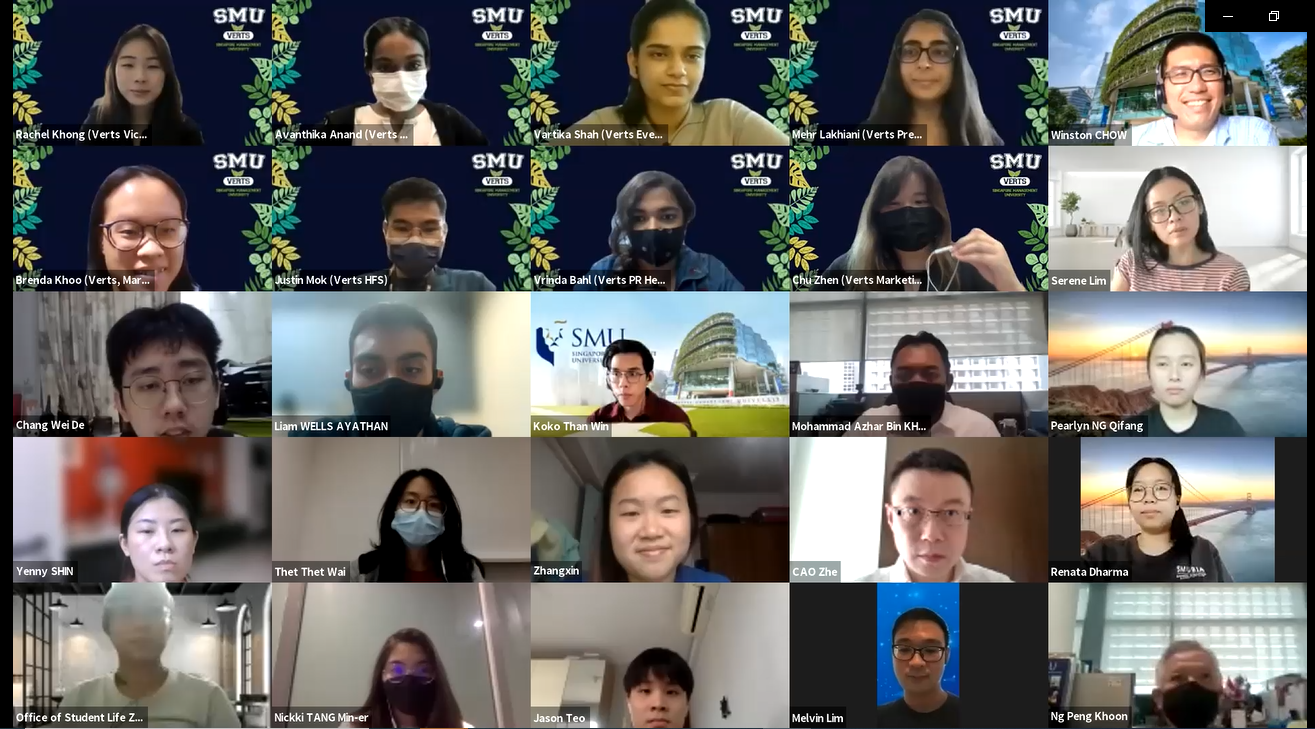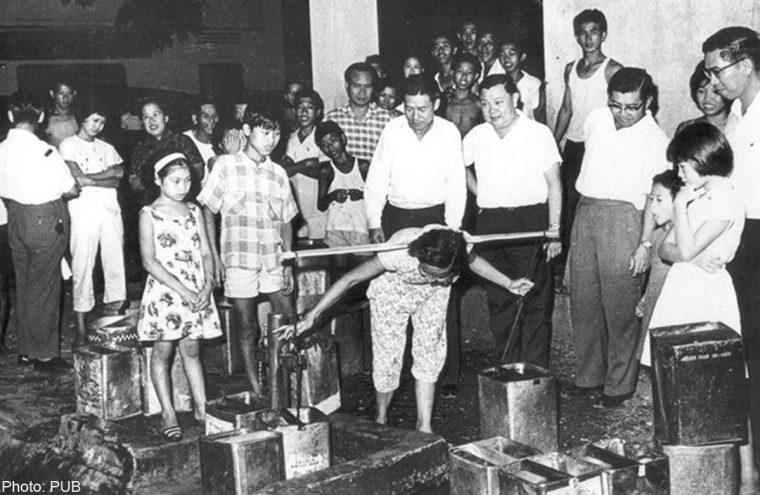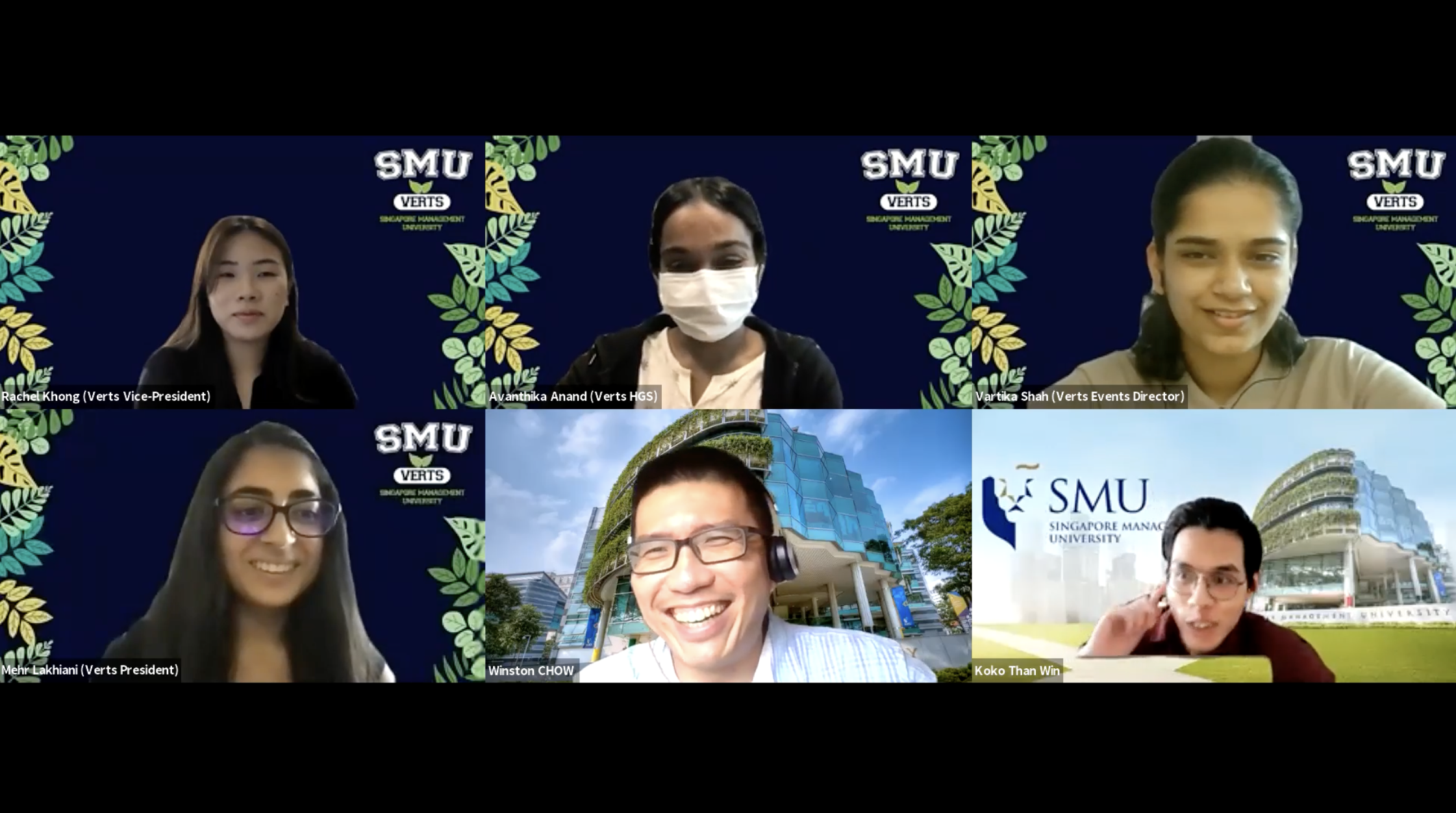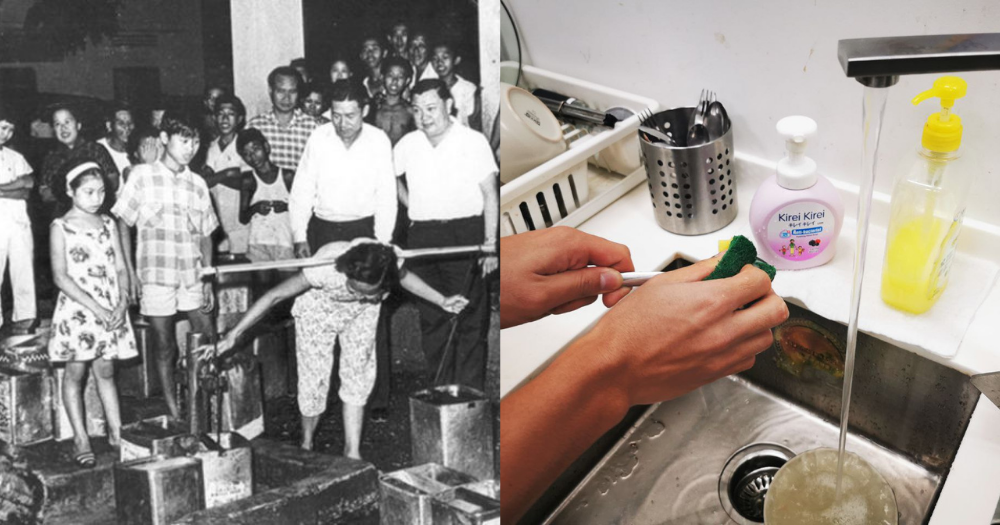Follow us on Telegram for the latest updates: https://t.me/mothershipsg
Do you know when was the last time Singapore had to ration water due to a drought?
This was a question posed to a virtual room of 50 student participants by Associate Professor at Singapore Management University (SMU) Winston Chow, who is a local climate scientist, at a recent talk held in view of World Water Day.
 Image courtesy of PUB and SMU.
Image courtesy of PUB and SMU.
For many young Singaporeans, it is difficult to imagine Singapore going without water for close to a year.
But that is certainly a possibility as Singapore is one of the most water-stressed countries. Besides, it happened before almost 60 years ago.
10-month water rationing in Singapore in the 1960s
Back in 1963, the taps in Singapore were dry as a severe drought swept through Singapore and Malaysia, resulting in an urgent appeal to the public to use less water till the water levels go back to normal.
But the public did not heed the advice, leading to a 10-month water rationing between April 1963 and February 1964.
 Water rationing in 1960s. Source: PUB.
Water rationing in 1960s. Source: PUB.
The drought events in the 1960s and 1970s have led to the inception of "Water is Precious" campaign.
Wasting water was really a crime at one point in our history as one would be slapped with a maximum fine of S$500 should they be caught wasting water.
The message was drilled in to every Singaporeans back then.
Climate change means we must continue to save water
About 60 years on, Singapore's quest for water security continues due to climate change.
Climate change brings about rising sea level and extreme weather conditions which can jeopardise our water supply.
Besides a transition from prolonged monsoonal floods to flash floods with more frequent and intense rainstorms, there's also evidence, such as the Palmer drought severity index, showing a shift to more extreme water-stressed conditions in Singapore and various Johor towns in recent years, Chow said.
While Chow highlighted how the national water agency PUB has taken steps to anticipate changing risks and enhance our water resilience, history may repeat again should the people neglect the importance of water conservation.
Some complacency could have set in
Inevitably, some complacency has set in over time as new generations of Singaporeans did not live through that painful period.
But for student organisers of this talk, who are part of the university's green group SMU Verts, their experiences living abroad have made them cherish the accessible and reliable supply of clean water in Singapore.
Koko Than Win, a Singaporean who was originally from Myanmar, shared that clean water is much harder to come by in Myanmar even till today:
"The tap water wasn't really clean, at least that's what my parents told me, so it's difficult to shower and all that... you can't drink from tap water in Myanmar. So, when I had to bathe right, we had a pail that was rationed to us. In Singapore, if you tell [people] this, they will never comprehend because I think Singaporeans have never experienced this before. So that's one of the dangers, I think, if you don't conserve water, potentially, you know, this could happen to countries around the world and me coming from Myanmar certainly don't want you guys to just bathe with buckets of water every day, like maybe just three litres, you know, that might not be enough. So I think everyone should just do their part to make sure that water doesn't run out and you should use it sparingly."
Mehr Lakhiani, another Singaporean who had lived in South Korea before, echoed that clean water is "taken for granted" in Singapore, especially among younger Singaporeans. Back in Korea, her family takes water conservation really seriously.
She said that she was surprised to see how some students here do not turn off the tap while soaping their dishes.
A contributing factor to this complacency could be "how it's emphasised [in Singapore] that you can drink from the tap, you get clean water so easily here", Mehr added.
"Singapore is so developed and it's not as seen that water needs to be saved and PUB is also doing so much so sometimes individuals may not feel the need to do much for water, but I like how Prof showed us...even though right now in the Singapore situation is better, that doesn't mean that it can't worsen in the future."
This is why SMU Verts have three online events lined up for World Water Day to remind the student community about the importance water saving including this talk with the university's climate expert.
 Screenshot from virtual talk.
Screenshot from virtual talk.
"I think that when students hear it from someone that is that is very concerned about what's actually going on, they're more likely to pay attention, and actually be like interested in what's going on," SMU Verts Event Director Vartika Shah explained why she decided to get Chow to conduct a talk.
Students from SMU Verts taking the lead
Besides the talk with Chow, students from SMU Verts have encouraged students to wear blue to commemorate World Water Day and held a design contest to give students a creative avenue to promote water conservation.
"[Water conservation] is something that all Singaporeans can do from the moment they wake up," Koko said.For Koko, he shared that he uses buckets to shower instead of showerhead so that he can observe closely how much water he's using. He limits his shower to less than 10 minutes as he times it by listening to a maximum of three songs in the loo.
Other examples of ways to save water include turning off the tap when you are not using it and installing water saving features at home which can help save money as well.
While these water saving tips may seem to be just small tweaks to one's daily lives, no action is too small.
As Vertika described that this is also the most important takeaway from Chow's talk, she shared:
“One of my most important takeaway from the talk was to do with how each individual, even us students, can make a difference. Even when we think that our actions are small and don’t matter in the larger scale of things, they do. It is important to play our part without expecting that everyone else around us should be doing the same. Another eye-opener would be the temperature graph shown and it made me realise that we don’t have as much time as we might think we have. The time for change is now and we need to be more aware of our actions.”
Top photo via PUB and by Zheng Zhangxin
If you like what you read, follow us on Facebook, Instagram, Twitter and Telegram to get the latest updates.

